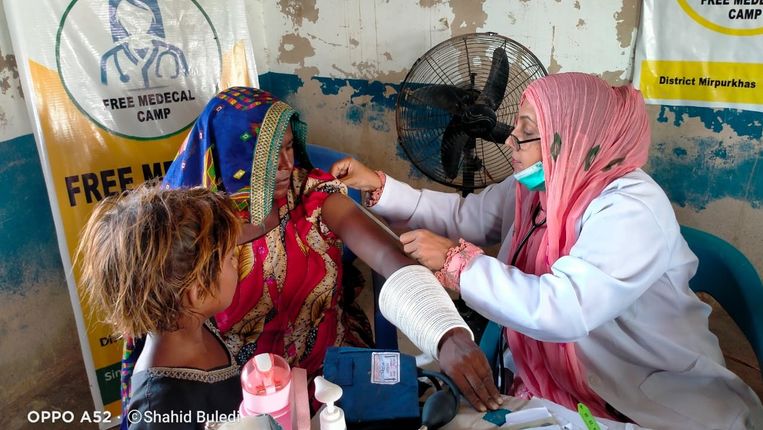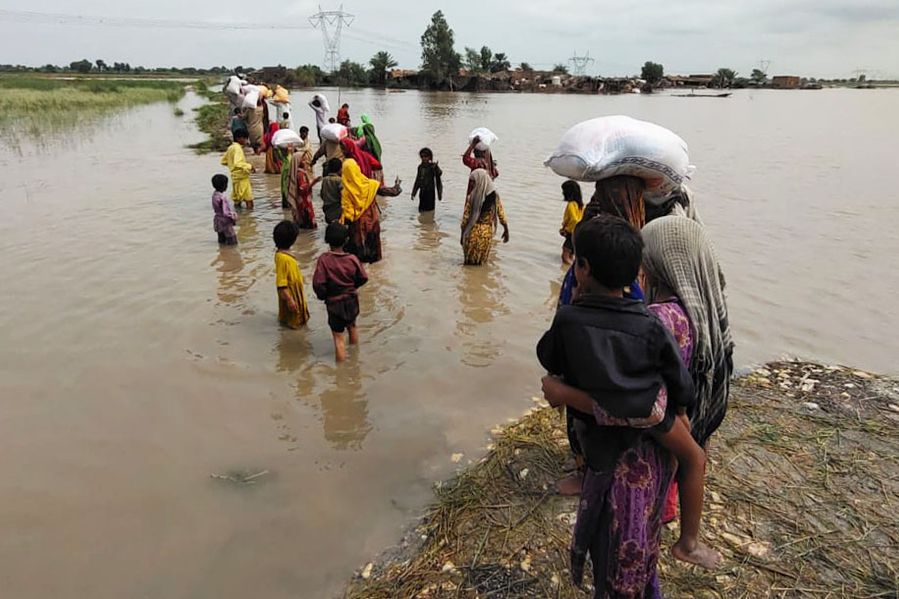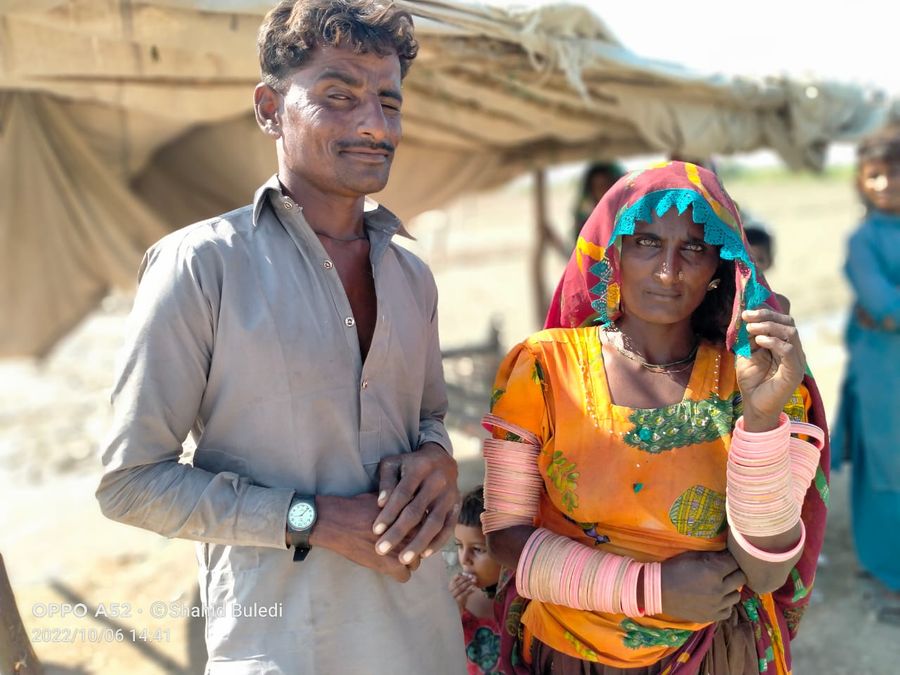
After the floods: fear of hunger and epidemics
The village is still under water, except for the road that runs past it, which is slightly elevated and dry. On the narrow strip of grass next to it, 68-year-old Hawa Punhon Bheel has built a shelter for herself and her six family members out of straw and branches. Within sight: Her home, the village of Taluka Jam Nawaz Ali in Sindh province in southeastern Pakistan, her fields and herd of cattle - everything is under water, the crops and goats are lost. The 68-year-old is desperate: "We could only save the children and our lives. Now we have nothing and live on the street. There is no food and hardly any help."

This summer 2022 has been one of the worst in the country's history: After heavy rains in June and July, massive flooding affected more than 33 million people in Pakistan. Nearly 1,700 people died, and more than two million homes and critical infrastructure such as roads, sanitation and health facilities were destroyed. Around 20 million people are still dependent on humanitarian aid, according to the United Nations. Many people no longer know how to feed themselves and their families.
The situation in the flooded areas, such as in Sindh province, is devastating. Malteser International is distributing cash, tents and medicines to around 6,000 families in need. "The people lack everything, they urgently need more help to ensure the survival of their families," reports Cordula Wasser, Head of the Asia Department at Malteser International.
Gastrointestinal and infectious diseases on the rise
The acute need for emergency relief is only one of several urgent problems in the affected region: In Pakistan, one third of the country - an area three times the size of Portugal - was temporarily under water. Although the water is slowly receding, contaminated drinking water and subsequently accumulating diarrheal and infectious diseases remain a serious threat.

"Mosquitoes are also nesting in the remnants of water still standing everywhere in and around the villages, and more and more people are becoming infected with malaria and dengue fever. At the same time, there is hardly any way for the sick to get to the hospitals, as either the access roads or the facilities have been destroyed by the water masses," Wasser reports.
In the province of Sindh, Malteser International therefore supports 2 mobile medical teams of a local partner organization in order to be able to treat sick people on site. One of them is Mojhan Partab. The 34-year-old from the village of Niaz Muhammad Kapri is pregnant. She lost her home and all her savings in the flood. Her husband has a disability and lost his job. The family is in need of humanitarian aid. It is uncertain when they will be able to return home and what will happen to them there - their village is still under water.
(October 2022)








